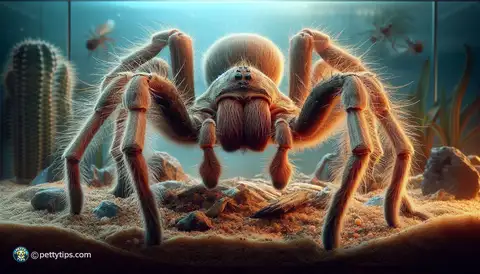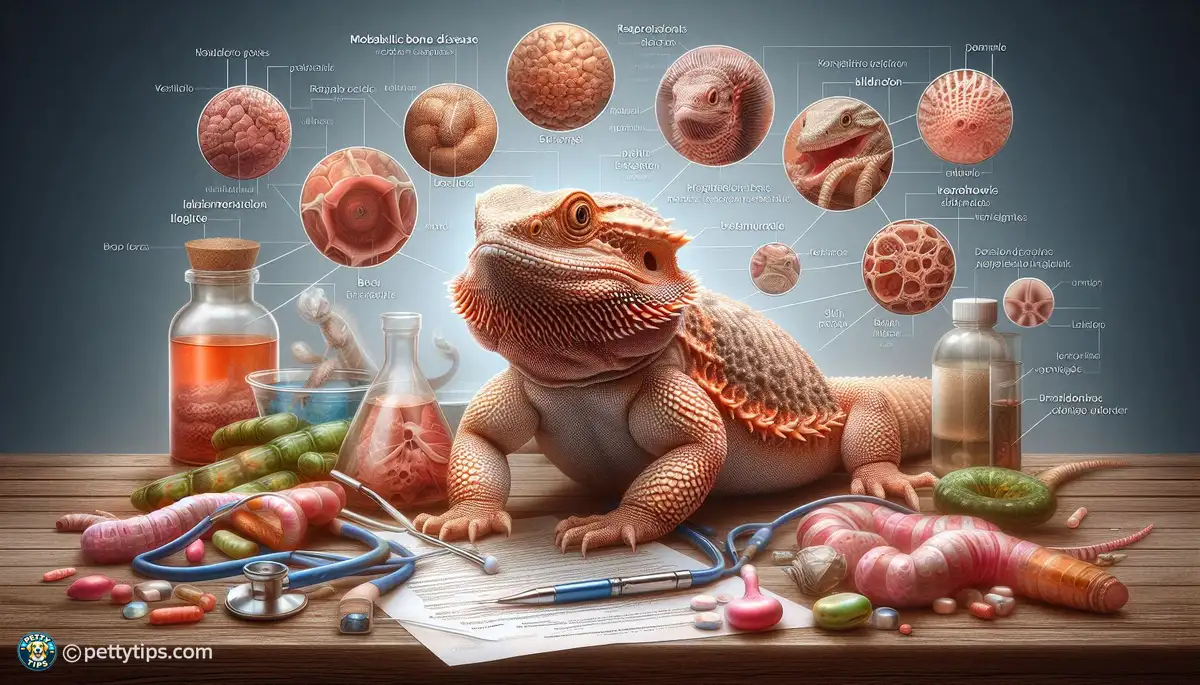
Understanding the Behavior of Sun Spiders in Captivity
Mark Sung - Oct 02, 2024 - 6 min read


Exotic reptiles bring a sense of wonder and mystery to the world of pets. Their unique biology and behaviors captivate enthusiasts worldwide. However, with their exotic charm comes unique health challenges that every reptile owner should be aware of. Understanding these challenges is essential for providing proper care and ensuring the well-being of these fascinating creatures.
One of the most prevalent health issues in exotic reptiles is metabolic bone disease (MBD). MBD occurs due to a lack of proper calcium and vitamin D3 in their diet, leading to weakened bones and deformities. Respiratory infections are also common among reptiles, especially if they are kept in inadequate enclosures with poor ventilation. Additionally, parasites such as mites and ticks can pose significant health risks to reptiles if left untreated.
To prevent metabolic bone disease, it's crucial to provide reptiles with a balanced diet rich in calcium and vitamin D3. This often involves supplementing their diet with calcium powder and ensuring they have access to UVB light, which aids in vitamin D3 synthesis. Proper enclosure setup is vital for preventing respiratory infections. Owners should ensure that enclosures have adequate ventilation and maintain appropriate humidity levels. Regular cleaning and disinfection of enclosures can also help prevent the spread of infectious agents.
Creating and maintaining optimal environmental conditions is essential for the health and well-being of exotic reptiles. Reptiles are ectothermic, meaning they rely on external sources of heat to regulate their body temperature. Therefore, maintaining proper temperature gradients within their enclosure is crucial for their physiological functions, including digestion, metabolism, and immune function.
One common environmental issue in reptile husbandry is improper temperature regulation. If reptiles are kept in enclosures with inadequate heat sources or temperature gradients, they may become stressed, which can weaken their immune system and make them more susceptible to illness. Another common issue is improper humidity levels, which can lead to dehydration and respiratory problems, particularly in species that require high humidity.
To ensure optimal environmental conditions for exotic reptiles, owners should invest in quality heat sources such as heat lamps or heating pads to create temperature gradients within the enclosure. Using a thermostat is essential for regulating temperature and preventing overheating. Additionally, owners should monitor humidity levels closely and provide appropriate substrate and misting systems to maintain adequate humidity levels. Regular monitoring of environmental conditions and making adjustments as needed is key to preventing health issues related to improper husbandry.
proper nutrition is vital for the overall health and well-being of exotic reptiles. Reptiles have specific dietary requirements based on their species, size, age, and activity level. Providing a balanced diet that meets these requirements is essential for maintaining optimal health and preventing nutritional deficiencies.
One common nutritional issue in reptiles is feeding inappropriate prey items. Some owners may feed their reptiles a diet consisting solely of feeder insects, which may lack essential nutrients. Additionally, overfeeding or underfeeding can lead to obesity or malnutrition, respectively. Another common issue is feeding reptiles fruits and vegetables that are high in oxalates, which can bind calcium and lead to calcium deficiency.
To ensure proper nutrition for exotic reptiles, owners should research the dietary requirements of their specific species and provide a varied diet that includes a mix of feeder insects, small mammals, and leafy greens. It's essential to gut-load feeder insects with nutritious foods before feeding them to reptiles to ensure they provide adequate nutrition. Supplementing with calcium and vitamin D3 is also crucial for preventing nutritional deficiencies. Additionally, owners should monitor their reptiles' body condition and adjust feeding accordingly to prevent overfeeding or underfeeding. Regular veterinary check-ups can help identify any nutritional deficiencies early on and prevent long-term health issues.
Maintaining proper hygiene practices is essential for preventing the spread of diseases and infections among exotic reptiles. Reptiles are susceptible to various bacterial, viral, and fungal infections, which can spread rapidly in captive environments if proper hygiene measures are not followed. Regular cleaning and disinfection of enclosures, equipment, and feeding dishes are crucial for minimizing the risk of disease transmission.
One common hygiene issue in reptile husbandry is the buildup of feces, uneaten food, and shed skin in the enclosure. These organic materials can harbor harmful bacteria and parasites, increasing the risk of disease transmission. Another common issue is using contaminated substrate or water sources, which can introduce pathogens into the reptile's environment.
To maintain proper hygiene and prevent disease in exotic reptiles, owners should establish a regular cleaning schedule for enclosures and equipment, including substrate changes, disinfection of surfaces, and cleaning of water dishes and feeding utensils. It's essential to use reptile-safe disinfectants and cleaners to avoid exposing reptiles to harmful chemicals. Quarantining new reptiles before introducing them to existing collections can help prevent the spread of infectious diseases. Additionally, practicing good hand hygiene, such as washing hands thoroughly after handling reptiles or their habitat, can help reduce the risk of disease transmission between reptiles and humans. Regular veterinary check-ups and health screenings are also essential for early detection and treatment of any underlying health issues.